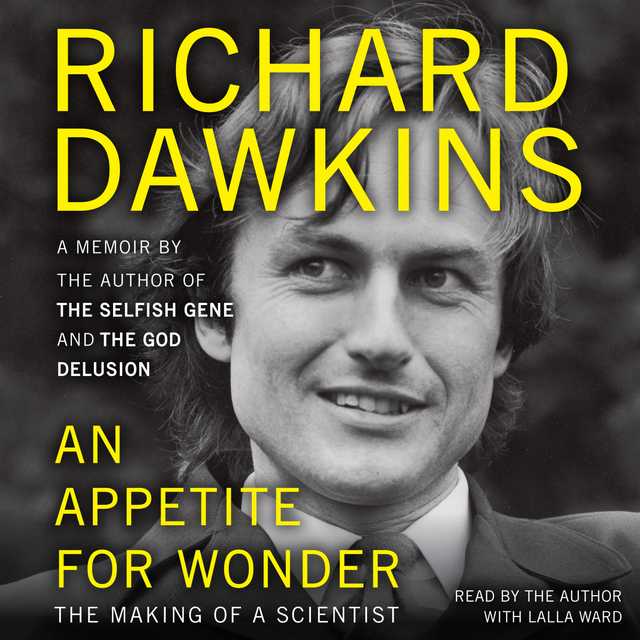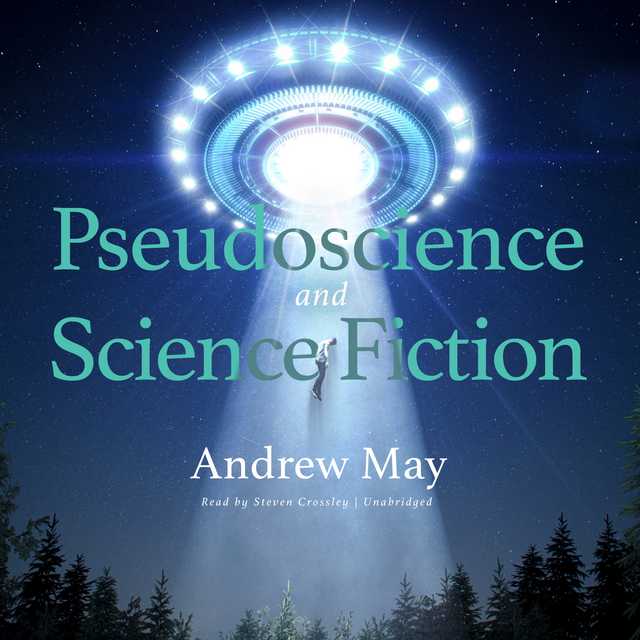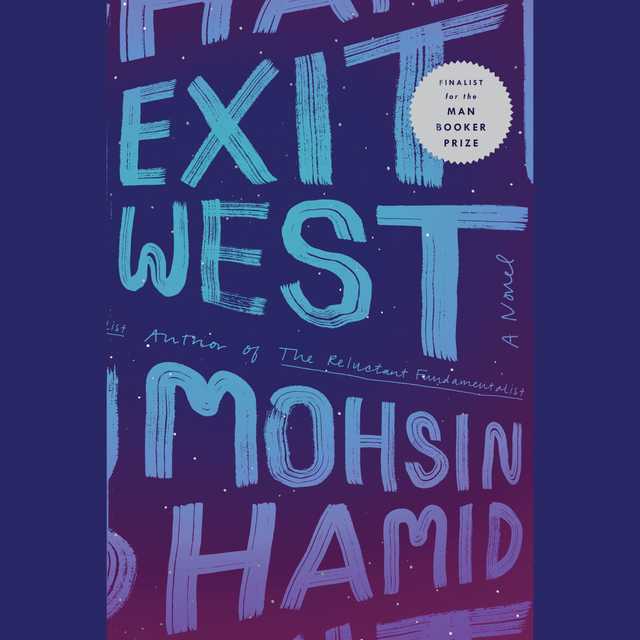An Appetite for Wonder Audiobook Summary
New York Timesbestselling author and renowned atheist and evolutionary biologist, Richard Dawkins delivers an intimate look into his own childhood and intellectual development, illuminating his path to becoming one of the foremost thinkers in modern science today
“A memoir that is funny and modest, absorbing and playful. Dawkins has written a marvelous love letter to science . . . and for this, the book will touch scientists and science-loving persons . . . Enchanting.” –NPR
Other Top Audiobooks
An Appetite for Wonder Audiobook Narrator
Richard Dawkins is the narrator of An Appetite for Wonder audiobook that was written by Richard Dawkins
Richard Dawkins was first catapulted to fame with his iconic work The Selfish Gene, which he followed with a string of bestselling books. Part one of his autobiography, An Appetite for Wonder, was published in 2013.
Dawkins is a Fellow of both the Royal Society and the Royal Society of Literature. He is the recipient of numerous honours and awards, including the Royal Society of Literature Award (1987), the Michael Faraday Award of the Royal Society (1990), the International Cosmos Prize for Achievement in Human Science (1997), the Kistler Prize (2001), the Shakespeare Prize (2005), the Lewis Thomas Prize for Writing about Science (2006), the Galaxy British Book Awards Author of the Year Award (2007), the Deschner Prize (2007) and the Nierenberg Prize for Science in the Public Interest (2009). He retired from his position as Charles Simonyi Professor for the Public Understanding of Science at Oxford University in 2008 and remains a Fellow of New College.
In 2012, scientists studying fish in Sri Lanka created Dawkinsia as a new genus name, in recognition of his contribution to the public understanding of evolutionary science. In the same year, Richard Dawkins appeared in the BBC Four television series Beautiful Minds, revealing how he came to write The Selfish Gene and speaking about some of the events covered in this autobiography.
In 2013, Dawkins was voted the world’s top thinker in Prospect magazine’s poll of over 10,000 readers from over 100 countries.
About the Author(s) of An Appetite for Wonder
Richard Dawkins is the author of An Appetite for Wonder
More From the Same
- Publisher : HarperAudio
- Abraham
- American Gods [TV Tie-In]
- Dead Ringer
- House of Sand and Fog
- Prey
An Appetite for Wonder Full Details
| Narrator | Richard Dawkins |
| Length | 7 hours 56 minutes |
| Author | Richard Dawkins |
| Category | |
| Publisher | HarperAudio |
| Release date | September 24, 2013 |
| ISBN | 9780062283566 |
Additional info
The publisher of the An Appetite for Wonder is HarperAudio. The imprint is HarperAudio. It is supplied by HarperAudio. The ISBN-13 is 9780062283566.
Global Availability
This book is only available in the United States.
Goodreads Reviews
Bradley
April 23, 2017
This is pretty much entirely an autobiography, giving us all the stray bits of Richard Dawkin's childhood through college and, later, his pet projects and his interest in programming before later publishing The Selfish Gene.As a writer, he's always good. He seemed to have a rather interesting childhood in Africa with loving parents, becoming a rather bullied child in school, getting heavily into religion among other things, including a rather unfortunate sexual event. At least it didn't seem to scar him. He also took a rather indirect path to his studies, too, but I suppose this is also rather normal, being pushed one way or another by faculty and opportunity, but at least he eventually got into the mode, thanks to the theories that naturally dovetailed between programming and biology, to write his most famous book.Pretty fascinating. I wouldn't say it's extremely so, but it was certainly edifying.The first half of the book is his life, of course, but the later sections DO give you a pretty concise summary of the thought experiments and science that led up to the book, so be prepared for at least SOME rather intense science, even if most of the rest of the book is more personable. Funny story: I read this without reading the blurb. And I thought it was just going to be another science book! Not an autobiography! I felt duped! :) lol live and learn, live and learn... :)
David
January 02, 2014
In this short autobiography, Richard Dawkins covers the first half of his life. The book ends with the publication of his first book, The Selfish Gene. The book is filled with short anecdotes about Dawkins' life growing up, from the youngest age. The first half of the book covers his childhood; in this section Dawkins frequently wonders why he did so many "unthinking" things, often devoid of curiosity. He wonders how he was influenced to become a biologist; and both his parents were interested in the natural sciences. His father, especially, had a strong influence on his early life.Dawkins' life in a boarding school is interesting. He writes about how bullying was a big element in the school. He wanted very strongly to see evidence in favor of religion. During his early teenage years he felt pleasure in religious observances. However, he later saw hypocrisy in the religious aspects of his school, and noted that even some of the faculty did not relish the religious observances.My favorite anecdote in the book occurs while Dawkins is a young boy in East Africa. His parents learn about a "lion kill" nearby, so the entire household is loaded up into the family car, and they ride off to see a lion devouring its prey. All the adults are spellbound by the sight. But Richard ignores the lion. Instead, he sits on the floor of the car playing with toy cars ("vroom, vroom").The second half of the book describes his science education and his early career. He relished computer programming, and developed a number of programs aimed at modeling biological behaviors. Throughout the book, Dawkins writes as a humble person, with none of the arrogance that some people see in him. The only downside to the book is that he writes too much in the beginning about his ancestors--this was somewhat boring. But overall, this is a charming book, about a leading biologist of our age. I listened to this book as an audiobook; Dawkins is the narrator, and his pleasant voice makes listening a delight.
David
September 03, 2013
Dawkins has given us some idea of how he has come to be the man he is, and how he has been influenced or not by the times in which he lived and the people and circumstances of his existence. Born during WW-II, in Africa where his Father served the King's African Rifles in Kenya, he relies heavily on his Mother's journals to exhibit details of those early years. History may relegate the African campaigns to North Africa and the exploits of Rommel, Montgomery and Patton, but the war influenced colonial Africa in many ways, not the least of which was the collapse of empires and independence of colonies in the years that followed. Dawkins might have become a biochemical researcher instead of an animal behaviorist, but for having tutorials with Niko Tinbergen. Who else might study the possible reasons why a fly might follow this or that pattern of cleaning itself by breaking down the individual elements and looking for patterns, or devise a computer program for counting the pecks chicks do on a particular target? His descriptions of these experiments are colorfully rendered not as the scientific papers they would become, but as the experiences of discovery and wonder that they were for him a part of his particular journey.This memoir stops after publication of The Selfish Gene in 1976, which is just about half way through his life to the present. This reviewer hopes there will be a second volume, and perhaps in future a third installment.There are moments in this book that gave me pause to stop and give some consideration to this or that thought, or connect to something else from my own life experience. I read Konrad Lorenz seminal book on animal behavior On Agression shortly after it was translated to English, and Desmond Morris The Naked Ape without giving much thought to the subtle problems with their views and what would come to be the thesis of Dawkins' insights into evolutionary thought. It is not the survival of the species, but the survival of the individual that drives natural selection, the principle of local rules which govern the outcomes rather than any drive by the entire specie. I could not help but think of Stanislaw Lem's wonderful review of "Bitistics" which is part of his volume Imaginary Magnitude, about the future study of computer generated literature, as I read the final paragraphs of the chapter "Return To Oxford". Dawkins has a marvelous wit, and can be very self-effacing in his presentation of his own behavior. This is readily apparent in those parts of his childhood in which he recalls his participation in bullying other students, or his failure to take advantage of the opportunities presented to him as a teenager to study music or mathematics. If there is one failure in this memoir, it is that his wife seems to be nothing more than a sentence her or there and not a major part of his life.
Kevin
December 21, 2022
"Cliché or not, 'stranger than fiction' expresses exactly how I feel about the truth. We are survival machines - robot vehicles blindly programmed to preserve the selfish molecules known as genes. This is a truth which still fills me with astonishment. Though I have known about it for years, I never seem to get fully used to it. One of my hopes is that I may have some success in astonishing others."In my humble estimation, Dawkins falls somewhere between Charles Darwin and Bertrand Russell, maybe even a hybrid of the two. He is as much of a philosopher as he is a biologist and sees himself, arguably so, as a champion of evolutionary science.Ernest Becker points out in his Pulitzer Prize winning psychological study, The Denial of Death, that men who see themselves as historical figures marshal themselves toward the hard work and dedication necessary to achieve that perceived immortality. Richard Dawkins is no exception. This is an autobiography that evolves, chapter by chapter, into an impressive multi-dimensional résumé. If you admire and respect Dawkins as much as I do, I suspect you'll find this captivating and insightful. Evangelical zealots need not bother.
Charbel
September 17, 2014
Richard Dawkins has a reputation. He’s considered the leading figure in the “militant atheism” movement, as well as religion’s harshest critic. In scientific circles, however, he’s also well known as a major contributor to ethology, animal behaviour science, and evolutionary biology. In short, he is, as he put it, a “labourer in Darwin’s vineyard today”.An Appetite for Wonder: The Making of a Scientist takes you on a journey where you get to know the man behind the persuasive arguments, celebrated books, and glorious accomplishments. Dawkins doesn’t start from his birth; he is far too scrupulous for that. In fact, he goes even beyond. He begins his story with the origin of his family name, Clinton, back in the 1700s, and then progressively moves from there. Though all that background information can be a bit tedious, it’s important to understand that Dawkins considers even the most trivial detail about his heritage an integral part of who he is. The first part of the book mainly consists of his childhood, until the age of eight, in colonial Africa. Born during the Second World War, Dawkins and his family moved from country to country, creating loving memories for the young Richard that contributed in shaping the man he had become. But to the reader, this part of the book shows Richard Dawkins in a new light. You get to see a small child that is very much like any other small child. Dawkins paints these events in a nostalgic way that is both vivid and engaging. The following paragraph demonstrates how the writing can make you see Richard the boy differently than Richard the man:‘My parents also recorded that I had a large repertoire of songs, which I would render, always correctly in tune, pretending to be a gramophone, sometimes with “jokes” such as getting stuck in a groove and singing the same word over and over until the “needle” (my finger) was pushed out of the groove.’Here we don’t see Richard the scientist, or the atheist, but the young boy who, like many boys of his age, provided some entertainment to the grownups using his young childish sense of humour.The second part of the book begins with the family returning to England, and young Richard being sent to boarding schools; first to a preparatory school then to a public school (a misleading term as it’s actually a private school). In this part of the book, we glimpse some of young Richard’s school life, and even some of the adult’s many regrets. An interesting fact mentioned repeatedly in the memoir about school is not an abundance of child abuse from the masters (called discipline back then), but the proliferation of near-pedophiliac instances. Dawkins mentions that young boys who carry strong resemblances to girls, including him, were prone to harassment from older students and even from a master. This part of the book is also significant as it’s the main part of the memoir that contains some reflections on Dawkins different religious views. If you are expecting a fair deal about his atheism, I would simply point out that the book is called The Making of a Scientist and not The Making of an Atheist.The third part begins with his studies in Oxford and goes on to recount his time in Berkeley, California. This section also holds a great deal about his research in ethology, which would be attractive to any science enthusiast. There is also a chapter on The Selfish Gene (1976), the book that made Dawkins a household name and glorified him in scientific circles (I highly recommend reading The Selfish Gene). Dawkins’ first book also helped the author coin the term “Meme”, which stands for a cultural unit that evolves from individual to individual, just like a gene does in a molecular manner (yes Meme existed way before Grumpy Cat and Angry Baby).In conclusion, I recommend reading this wonderful memoir and getting to know the man behind the many controversies. An Appetite for Wonder is funny, engaging, and full-blown fascinating. Also keep your eye out for the second volume of the memoir (yes there will be a new book) meant to come out in two years’ time. I personally can’t wait.
Ron
September 28, 2013
The only reason I gave it only four stars is that a couple of the chapters describing his research were very arcane and way above my ability to follow! Other than that, this is a great book, telling of this great scientist's life from birth until the publication of his surprise best-seller bombshell THE SELFISH GENE. If you want proof of evolution, you need go no farther than his explanation of the revealingly "bad design" of the recurrent laryngeal nerve and how it traces directly back to our evolution from fishes. Oh, please, save your "intelligent design" foolishness for a fool! Explain why this nerve goes from the brain into the chest and THEN to the larynx! Dawkins does, clearly and lucidly. I am eagerly awaiting his next memoir installment which he says will be out in two years. Oh, heck, the nerve thing is so well explained I am giving back the one star I took away! Here is part of what Amazon says: With the 2006 publication of The God Delusion, the name Richard Dawkins became a byword for ruthless skepticism and "brilliant, impassioned, articulate, impolite" debate (San Francisco Chronicle). his first memoir offers a more personal view.His first book, The Selfish Gene, caused a seismic shift in the study of biology by proffering the gene-centered view of evolution. It was also in this book that Dawkins coined the term meme, a unit of cultural evolution, which has itself become a mainstay in contemporary culture.In An Appetite for Wonder, Richard Dawkins shares a rare view into his early life, his intellectual awakening at Oxford, and his path to writing The Selfish Gene. He paints a vivid picture of his idyllic childhood in colonial Africa, peppered with sketches of his colorful ancestors, charming parents, and the peculiarities of colonial life right after World War II. At boarding school, despite a near-religious encounter with an Elvis record, he began his career as a skeptic by refusing to kneel for prayer in chapel. Despite some inspired teaching throughout primary and secondary school, it was only when he got to Oxford that his intellectual curiosity took full flight.
Kim
October 09, 2013
It's hard for me to imagine a world without Richard Dawkins, because his books have contributed so much to my understanding of the world (as they've done for so many others). I've often wondered how exactly he became the man that he is. I have to say that his background is pretty much as anyone might imagine--an African childhood spent wandering the bush (although he downplays its significance), a botanist father, prep school and then Oxford, where his father and several other family members had gone before him. This autobiography is fairly straightforward in the telling and focuses on Dawkins' academic and professional life, including passages where he shares details of some of his early research. But we get a few glimpses into his other interests as well, like his love of poetry and the written word (largely introduced to him by his mother).While he covers his schoolboy rejection of Christianity, this volume ends with the publishing of The Selfish Gene, so if you're curious about his transition to the no-holds-barred brand of atheism for which he has become known (probably more for than his research, for better or worse), you won't find it here. But word is there will be a second volume, and there are enough clues in this volume to explain it. His dedication to research and getting to the truth are so core to his being that he can't seem to forgive himself even for the times that, as a child, he failed to question fantastical things that adults told him. An interesting (and in many ways, inspiring) read.
Olga
May 13, 2017
My first memoir... It was really good. I really admire Richard Dawkins so maybe I'm bias in this, I think he's brilliant and it was very interesting to know a little about his early life, about his passion for biology specially zoology and evolution. Very thought provoking for me and inspiring to continue my journey to become a better scientist and researcher. It feels weird trying to rate a non-fiction book, but this one I think deserves the highest rating. It has a bit of everything and I just love the way he writes. Also I'm happy I finish this before the start of #booktubeathon
Menglong
July 31, 2018
"An Appetite for Wonder: The Making of a Scientist" is an autobiography of Richard Dawkins, from his childhood upto when he wrote the Selfish Gene, Dawkins is mostly known for his harsh critic on religions, so most people do not know that he's also a prominent evolutionary biologist. The tone in this book is quite different from the God's Delusion, and people may find the two books were written by different authors. I personally like both versions of Dawkins although I disagree with some things he said.It is fascinating to learn about his childhood and what contributed to his love of biology. From the book, we can learn about the people who influenced Dawkins, his first experience with religions, and his journey through education and work. There are also science contexts embedded in this book, but it is a bit dense for me to digest properly.Overall, it's an enjoyable read.
Indah Threez
March 26, 2017
132 - 2017
Bogdan
September 15, 2019
Did it change my opinion on Richard Dawkins? Yes, it kinda did. And I am very happy about it. I met Dawkins the man, and through the book I realized I have many traits in common with him. His tendency for philosophy, and for the Popperian way of doing science are amazing to me. I found this autobiography really honest. One of the things I really enjoyed was the depiction of the life at Oxford. He described so well the atmosphere of those times, and made such great combinations of stories and science, it makes you wish to be in Oxford for your whole life. Really, his life is great. Although there are a lot of differences in the admission process at Oxford, Cambridge, etc (which was a decisive point in his life), and the admission was based on completely other points, he is definitely a word-class scientist. It's so great to read about his projects, and see what happens in the mind and life of such a productive scientist. I also appreciated his interest in other fields, and how his love for genetics and behavioral zoology, and his scientific path, was completely defined by his character and traits. He made the best out of himself. Overall, a great, enjoyable read. “Shouldn’t children be taught critical, sceptical thinking from an early age? Shouldn’t we all be taught to doubt, to weigh up plausibility, to demand evidence?”
Judith
October 12, 2013
The title changed from what is written above to what is shown on the book jacket.A different kind of autobiography. For one, it is intended to be just part 1. Part 2 is to come out in a couple of years, if all goes well. Part 1 takes us from childhood through the publication of Dawkins' first book, The Selfish Gene, in 1976. Although called "an intimate memoir" on the book jacket, the book skirts a lot of what I'd call "intimate". For example, his marriages are mentioned in passing, with no information about how Dawkins met the women, what led up to the weddings, anything about their lives together.Similarly, we learn about previous generations of his family, about elementary school and something about the way Dawkins' parents raised Richard, and we learn that the family moved from Africa to England and why, and which schools Richard attended, but really very little about day-to-day life. Instead, we learn how Richard felt about different things that happened in his life, some of which he regretted or could not understand, while others led to his future thinking on evolution. Really, it's a book about how Dawkins came to think as he does, and why he thinks Charles Darwin is really the father of science as we now know it, and certainly why Darwin is Dawkins' hero. The title is revealing in this way. The book explains how Dawkins developed and maintained his appetite for wonder. For those who have not read his other books, this one provides an introduction to The Selfish Gene, offering a brief explanation of the theme of that book. It also lays the foundation of Dawkins' atheism.
Alex
October 27, 2018
I loved this, it was an unexpected treat. Since Dawkins has written two separate books that have a profound impact on how I perceive the world and live my daily life, it was fascinating to get such an intimate glimpse into his origins, upbringing, formative experiences. Interesting that he spent so much of his early years in South Africa.It offers interesting portrayals of how "Times were different" back then, sanitary practices and values/beliefs/behaviors which would be condemned in modern times. Also fun to see Dawkins as a young devout believer and then see the first few moments in which he began to doubt it all.It's interesting to title it Appetite for Wonder because through a lot of his early years he just seemed to be an average kid who was bright but didn't really apply himself in school or his own hobbies. But, once he began studying at the university and research level, it's really awesome how passionate his is about it all. I hate to use that buzzword, sorry, but it's true. It warms your heart to see someone geek out and gush about his experiments measuring the frequency/patterns with which baby chicks peck things. On the surface it seems super boring and whatever, but he actually does a great job showing you how fascinating it is in the context of our gradually increasing understanding of how the brain works, the mechanisms of evolution, all that. The book had lots of laugh out loud moments, I was laughing like an asshole in the break room at work, it was great. Anyways, I'll definitely read the second book that covers the rest of his life, as this book only went from his origins up until the publication of his first book.
Gendou
December 26, 2013
A short, fun autobiography by the Dawkins himself. Little science and philosophy lessons are woven in between anecdotes of growing up. Did you know Richard was born in Kenya?
Andra
July 13, 2020
Pe Richard Dawkins l-am descoperit nu acum mult timp, dar ce bine ca l-am descoperit..pe el...si pe toti cei patru calareti. El e exact genul de om care poate si a facut stiinta atractiva, poetica si frumoasa. Asa ca evident ca am vrut sa aflu detalii din bucataria devenirii lui. Pe tot parcursul cartii se simte dragul de oameni si de cunoastere, dar si o anumita modestie care poate nu e evidenta in conferintele sale. E o carte cu de toate: istorii amuzante din copilarie, versuri, dar si detalii despre proiectele stiintifice."Priviti la maritul dinozaur,Al preistoriei celebru tezaurNu numai ca forta si marime, Ci si ca a intelectului lungime.Din aceste ramasite puteti observaCa animalul doua feluri de creier avea-Unul sus, in teasta (cum e si normal),Alrul la baza sirei, la final.Gandea, carevasazica, atat "a priori",Cat si, ce sa vezi!, "a posteriori".Nici o grija nu parea sa-l roada,Nu exista problema fara cap si coada.Era tare-ntelept, de buan seama,Gandurile-i strabateau intreaga coloana.Daca unul din creiere se simte ostenit,Ii pasa din idei celui mai odihnit.Cand mintii dintai ii scapa cevaA doua, salvatoare, pe loc se prindeaSi nu era greseala care sa-l rapuna-Indata ii venea mintea de pe urma.Gandea de doua ori pan-sa deschida gura,Judeca perfect, ce mai tura-vura.Putea, prin urmare, fara greutateSa-ntoarca problema pe fiecare parte.O, priviti acest animal adamantinPierit de zece milioane de ani pe putin." Bert Leston Taylor"Intr-un fel, genele sunt nemuritoare. Ele strabat generatiile amestecandu-se de fiecare data cand sunt transmise de la parinti la progenituri. Corpul unui animal nu este decat un loc in care genele poposesc temporar: supravietuirea lor in continuare depinde de supravietuirea acelui corp cel putin pana apuca sa se reproduce, moment in care gena va trece in alt corp.""Un milion de milioane de spermatozoiziSi toti sunt vii:Numai un singur Noe din al lor cataclismSa spere ca va izbandi.Si printre acei un milion far' de unuAr fi putut sa steaUn Shakespeare, un alt NEowton, un alt Donne-Numai ca sans-a fost a mea.Sa-ti fie rusine ca tu te-ai salvatCu arca, iar ceilalti pe dinafara au ramas!Ce bine ne-ar fi fost noua, homunculus nazuros,De te-ai fi stins acolo, tacut si sfios!" Aldous Huxley
Most Popular Audiobooks
Frequently asked questions
Listening to audiobooks not only easy, it is also very convenient. You can listen to audiobooks on almost every device. From your laptop to your smart phone or even a smart speaker like Apple HomePod or even Alexa. Here’s how you can get started listening to audiobooks.
- 1. Download your favorite audiobook app such as Speechify.
- 2. Sign up for an account.
- 3. Browse the library for the best audiobooks and select the first one for free
- 4. Download the audiobook file to your device
- 5. Open the Speechify audiobook app and select the audiobook you want to listen to.
- 6. Adjust the playback speed and other settings to your preference.
- 7. Press play and enjoy!
While you can listen to the bestsellers on almost any device, and preferences may vary, generally smart phones are offer the most convenience factor. You could be working out, grocery shopping, or even watching your dog in the dog park on a Saturday morning.
However, most audiobook apps work across multiple devices so you can pick up that riveting new Stephen King book you started at the dog park, back on your laptop when you get back home.
Speechify is one of the best apps for audiobooks. The pricing structure is the most competitive in the market and the app is easy to use. It features the best sellers and award winning authors. Listen to your favorite books or discover new ones and listen to real voice actors read to you. Getting started is easy, the first book is free.
Research showcasing the brain health benefits of reading on a regular basis is wide-ranging and undeniable. However, research comparing the benefits of reading vs listening is much more sparse. According to professor of psychology and author Dr. Kristen Willeumier, though, there is good reason to believe that the reading experience provided by audiobooks offers many of the same brain benefits as reading a physical book.
Audiobooks are recordings of books that are read aloud by a professional voice actor. The recordings are typically available for purchase and download in digital formats such as MP3, WMA, or AAC. They can also be streamed from online services like Speechify, Audible, AppleBooks, or Spotify.
You simply download the app onto your smart phone, create your account, and in Speechify, you can choose your first book, from our vast library of best-sellers and classics, to read for free.
Audiobooks, like real books can add up over time. Here’s where you can listen to audiobooks for free. Speechify let’s you read your first best seller for free. Apart from that, we have a vast selection of free audiobooks that you can enjoy. Get the same rich experience no matter if the book was free or not.
It depends. Yes, there are free audiobooks and paid audiobooks. Speechify offers a blend of both!
It varies. The easiest way depends on a few things. The app and service you use, which device, and platform. Speechify is the easiest way to listen to audiobooks. Downloading the app is quick. It is not a large app and does not eat up space on your iPhone or Android device.
Listening to audiobooks on your smart phone, with Speechify, is the easiest way to listen to audiobooks.






























